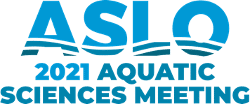SS13 Plankton diversity and ecosystem functioning in aquatic ecosystems
June 23-25, 10-12 am
Bingzhang Chen, University of Strathclyde, UK
Friederike Prowe, GEOMAR Helmholtz Centre for Ocean Research Kiel, Germany
Christiane Hassenrück, University of Bremen, Germany
Aleksandra Lewandowska, University of Helsinki, Finland
It has been firmly established in terrestrial and benthic systems that biodiversity is a strong determinant of ecosystem functioning, such as productivity and nutrient recycling. In the Anthropocene, the observed drastic loss of biodiversity has led to the concern that this loss may result in a significant impairment of ecosystem functioning. In aquatic ecosystems, element cycling, trophic transfer and metabolic balance are governed by dynamics within the plankton. They support almost half of the global primary productivity and play indispensable roles in regulating atmospheric CO 2 concentrations. Plankton are taxonomically and functionally diverse. However, whether this high diversity plays a role in determining ecosystem functioning is not clear, as links between species identity and function are not well established. In this session, we welcome contributions that can advance our understandings on the links between biodiversity and ecosystem functioning and services.. The study approaches may include, but are not limited to, theoretical modelling, laboratory and field experiments, as well as large-scale surveys. Both freshwater and marine studies are welcome. We particularly invite studies that use trait-based and molecular approaches, those that address multiple ecosystem functions or multiple trophic levels, and those that use an integrated approach combining insights from both theory and experimental studies. Of special interest are interdisciplinary studies linking biodiversity research to societal needs, such as assessing plankton diversity-driven ecosystem responses to climate change and water quality management.

